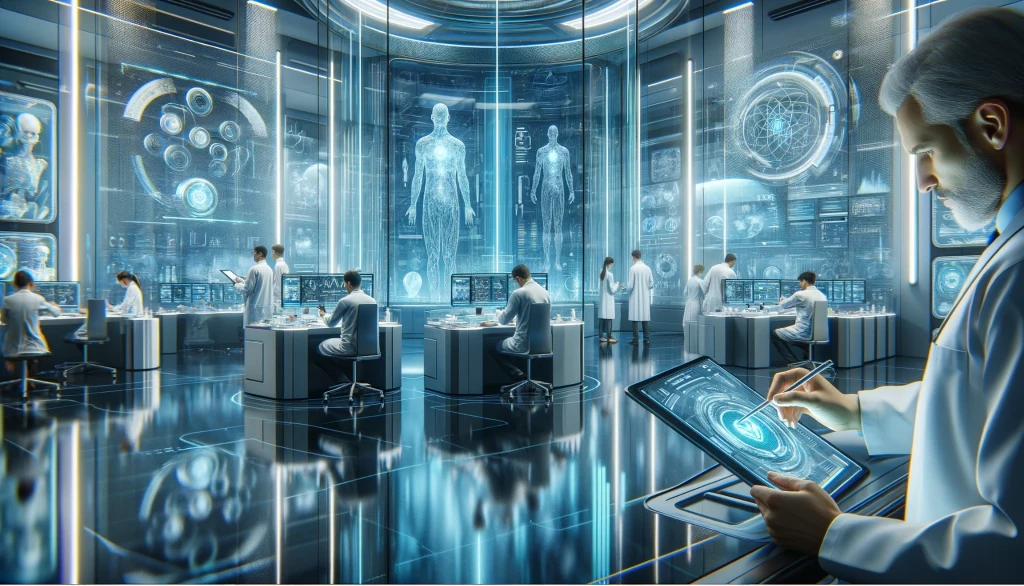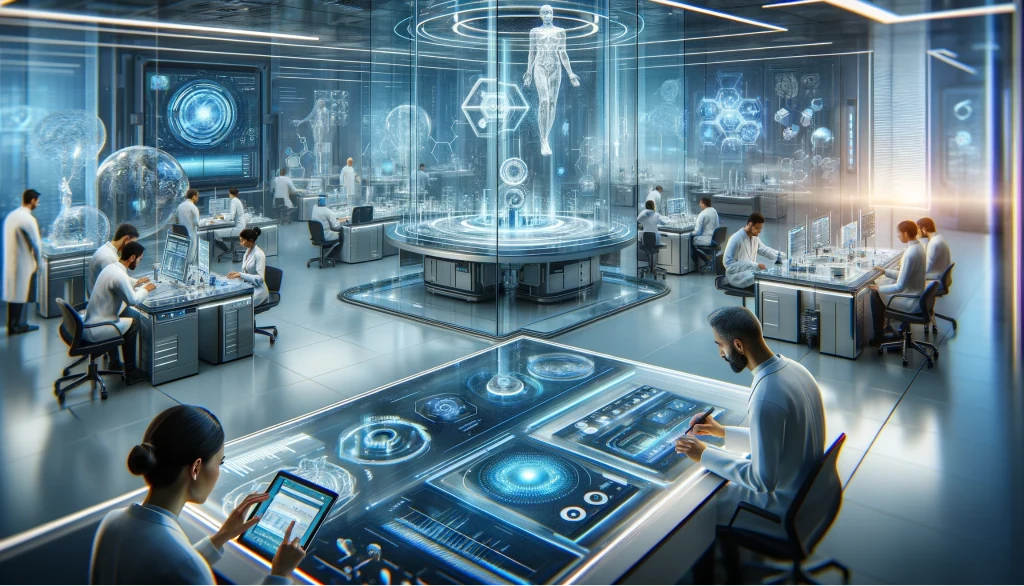Welcome to ExclusiveMedicalHubs, your trustful online platform with resources, insights, and updates on various medical topics, including healthcare services, the latest medical technologies, and innovations. The site serves as a hub for healthcare professionals and organizations seeking to stay informed about the latest developments in the medical field.
The site is in the works!
We are preparing everything carefully to bring you the latest and most valuable knowledge as soon as possible!

Our Mission
Our mission is to serve as a comprehensive resource for healthcare professionals, organizations, and patients who are keen to stay updated on the latest innovations and trends in the healthcare industry. We aim to provide insightful and accurate information to help health systems deliver appropriate care, improve health equity, and increase the overall quality of care, allowing clinicians to treat patients most effectively.
What to Expect on This Website
On our platform, you can expect to find:
- In-depth articles on healthcare services and new technologies
- Updates on the latest developments in digital health and remote patient monitoring
- Insights into healthcare delivery and value-based care
- Resources on cost reductions and improving efficiency in health services
- Case studies and examples of successful implementations of technology solutions
- Information on revenue cycle management and its role in improving efficiency and reducing administrative costs
What Will We Do
The healthcare industry has experienced a deep transformation in the past decade. From the start of digital health solutions to the use of AI in diagnostic testing, patient care is changing fast. We will:
- Regularly update our content with the latest information on healthcare technologies, health insurance, and new health plans
- Provide expert analysis and opinions on healthcare delivery and patient treatment
- Offer practical tips and strategies for healthcare professionals to improve productivity and manage administrative costs
- Highlight the role of private equity in driving innovation in the healthcare sector
- Foster a community for sharing knowledge and best practices in healthcare services
How We Gather Information
Our team of experts gathers information from a variety of reliable sources, including:
- Peer-reviewed medical journals and research papers
- Industry reports and whitepapers from leading healthcare organizations
- Interviews and insights from experienced healthcare professionals
- Data from government health agencies and medicare services
- Contributions from private equity-backed organizations involved in healthcare delivery
What are the Trends in the Healthcare Industry?

While our website is in the development stage, we want to give you some upgraded information to be sure you already know about trends in our health systems.
Healthcare tendencies include the latest developments and innovations in the healthcare sector that influence how health systems operate and deliver care to patients. These trends encompass a wide selection of areas, including:
- Digital transformation
- Remote patient monitoring
- The use of AI in diagnostic testing
- New approaches to value-based care
- Slow growth in specific segments of the healthcare industry, such as general acute care and post-acute care
Staying informed about these trends is important for healthcare providers, administrators, and patients to ensure the delivery of high-quality and appropriate care.
The Latest Innovations in the US Medicine
Innovations such as remote patient monitoring have transformed how doctors and patients interact, leading to better health outcomes. Adopting AI in various healthcare systems has unlocked new possibilities in medical screening, data analysis, and personalized treatment plans.
The evolving healthcare industry has also seen an increased focus on addressing social determinants of health and promoting overall well-being. Medicare’s advantage is significant in financial performance and growth opportunities, mainly because of its impact on the managed care duals population and the shift towards value-based care models.
- mRNA Vaccines. The effectiveness of mRNA vaccines for COVID-19, such as those developed by Pfizer-BioNTech and Moderna, has opened new possibilities for applying this technique to other infectious diseases and even cancer therapies. This technique uses the body’s inherent cellular processes to generate therapeutic proteins for treatment.
- CRISPR Gene Editing. CRISPR innovation allows for precise genome editing, enabling potential cures for genetic disorders, improved cancer therapies, and advancements in regenerative medicine.
- Telemedicine. The COVID-19 pandemic accelerated the adoption of telemedicine, which provides remote consultations and treatments, increases healthcare access, and reduces the need for in-person visits.
- Artificial Intelligence in Diagnostics. AI enhances diagnostic accuracy through advanced imaging analysis, predictive analytics for disease outbreaks, and personalized treatment plans based on extensive data analysis.
- Wearable Health Devices. Devices like smartwatches and fitness trackers are now equipped with sophisticated health monitoring capabilities, including heart rate, ECG, and blood oxygen levels, providing real-time health data to users and healthcare providers.
- 3D Printing of Organs and Prosthetics. 3D printing technology is being utilized to create custom prosthetics and is advancing towards printing functional tissues and organs, potentially reducing the need for organ donors and improving personalized medicine.
- Regenerative Medicine. Innovations in stem cell therapy and tissue engineering are leading to breakthroughs in regenerating damaged tissues and organs, offering hope for previously untreatable conditions.
- Immunotherapy for Cancer. Immunotherapies, such as CAR-T cell therapy, harness the patient’s immune system to target and destroy cancer cells, offering a more personalized and effective approach than traditional treatments.
- Precision Medicine aims to tailor treatments to individual patients by utilizing genetic, environmental, and lifestyle factors, improving efficacy and reducing side effects.
- Robotic Surgery. Robotic-assisted surgical systems enhance surgeons’ precision and control, allowing for minimally invasive procedures with faster recovery times and reduced risk of complications.
These innovations are transforming the US medical industry, improving patient outcomes, and expanding the capabilities of modern healthcare.
As we navigate the challenges of the COVID-19 pandemic, these innovations continue to play a crucial role in shaping the future of healthcare, ultimately benefiting patients, physicians, and the entire healthcare ecosystem.

In recent years, the growing interest in quality-driven care models has prompted healthcare providers to prioritize quality care and patient satisfaction. This shift has paved the way for integrating digital health solutions in acute care settings, improving efficiency and patient access.